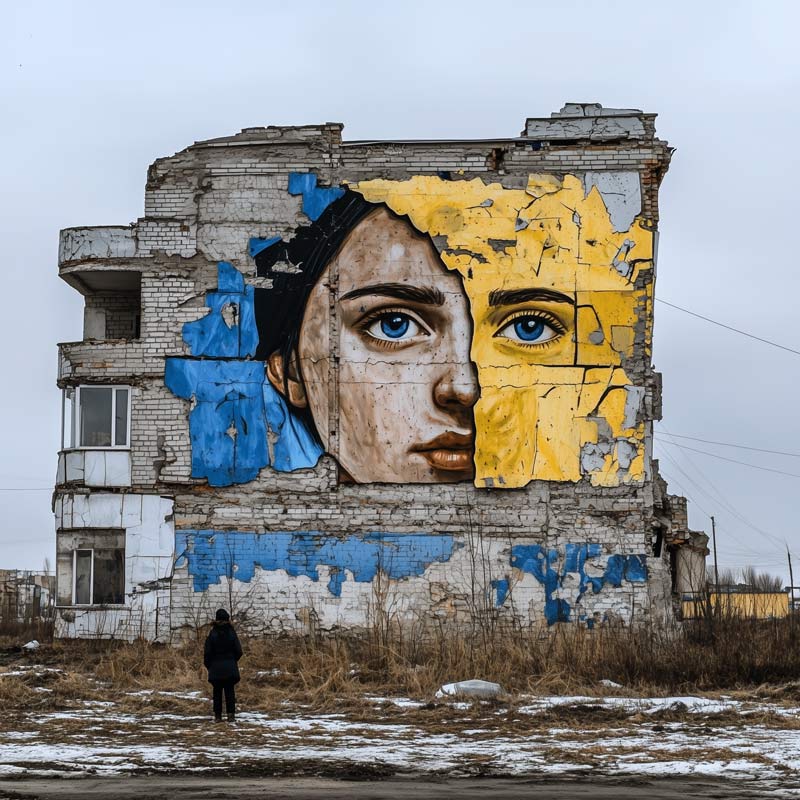On May 20, 2019, Volodymyr Zelensky was sworn in as President of Ukraine. His inaugural speech in the Verkhovna Rada was emotional and full of promises: to end the war in Donbas, unite the country, overcome poverty, lower utility tariffs, and “do everything so that Ukrainians would no longer cry.” In reality, the opposite happened—and not always due to external catastrophes. From the outset, these promises lacked any structural basis for implementation.
"I'm Ready to Do Anything for Peace"
Zelensky's main promise—to end the war in Donbas—not only went unfulfilled. Two and a half years after his inauguration, the war escalated to an unprecedented scale. Russia’s full-scale invasion on February 24, 2022, triggered the largest armed conflict in Europe since World War II.
As of spring 2025, international estimates of Ukraine’s losses diverge significantly from Kyiv’s official statements. In December 2024, Zelensky acknowledged 43,000 dead soldiers, without disclosing the number of wounded or missing. However, an analysis by The Economist (March 2025), citing Ukrainian intelligence leaks and the independent project UALosses, confirms at least 65,000 Ukrainian soldiers killed and around 55,000 missing, suggesting over 120,000 irrecoverable losses. Earlier, The New York Times, citing U.S. intelligence, estimated Ukrainian casualties at up to 70,000 killed and 120,000 wounded. In total, according to Western assessments, Ukraine may have lost up to 400–500,000 troops, including those killed, wounded, captured, or missing. While these figures align with typical casualty ratios in modern warfare, they are rarely mentioned in domestic discourse. Inside the country, despite large-scale mobilization and funeral ceremonies, the true cost of resistance remains a taboo subject.
The ceasefire that in 2019 seemed like a top priority has now become conditional: Ukrainian officials speak of peace only "based on the principle of justice," which effectively rules out any compromises. This means that people continue to die for objectives whose definitions keep shifting.
"I'm Not Afraid of Tough Decisions"
Zelensky claimed he was willing to lose his approval ratings—or even his office—if it brought peace closer. However, under martial law, all elections have been suspended. The presidential election, scheduled for March 2024, has been postponed indefinitely. Martial law is extended every 90 days—the latest extension remains in effect until August 9, 2025.
Formally, the reason is the ongoing aggression. In practice, it means Zelensky continues to govern with exceptional powers, without electoral checks. Political competition has been minimized, parliament plays a secondary role, and key decisions are made within a tight circle inside the Presidential Office.
"There Is No Division—Only Courage and Honor"
In 2019, Zelensky vowed to prevent a split between Ukrainian and Russian-speaking citizens. He emphasized that on the front lines, "there is no division, only courage and honor."
Today the situation is diametrically different. Since the start of the invasion, language policy has become markedly more rigid. In major cities across eastern and southern Ukraine—including Kharkiv, Zaporizhzhia, Dnipro, and Odesa—Russian remains the dominant language in 50–70% of households. Despite this, political and cultural expression in Russian is increasingly pushed out of the public sphere.
As a result, instead of bridging a cultural divide, a new line of tension has emerged—not just around language, but around the right to public identity.
"Shocking Tariffs, Humiliating Wages"
Zelensky pledged to transform the economic reality for ordinary citizens. Six years later, every metric—utility tariffs, wages, prices, employment—has worsened.
As of June 1, 2024, the unified household electricity rate rose by 64%, reaching 4.32 UAH per kWh (about $0.10). Even with expanded subsidies, the poorest households struggle to absorb the sharp increase in utility costs. Prices for food, transport, and medicine are rising faster than wages: inflation hit 26.6% in 2022, 12.9% in 2023, and accelerated again to 15.1% year-on-year in April 2025.
Nominal average wages nearly doubled—from 12,264 UAH in 2019 (≈$475 at the December 2019 exchange rate of 25.8 UAH/USD) to 24,000 UAH in 2025 (≈$580 at the current rate of around 41.5 UAH/USD). But real incomes have yet to return to 2021 levels—eroded by currency depreciation, inflation, and industrial decline.
"Each of Us Is the President"
The phrase became a meme—but in fact, it revealed a misguided vision of democracy as total unity. Today, civic participation is limited to volunteering, not political engagement. Citizens have little role in decision-making: independent media are shrinking, criticism of the government is treated as a national security threat, and public debate has been replaced by patriotic appeals from the military.
Six years ago, Volodymyr Zelensky came to power riding a wave of hope. Today, his authority rests on mobilization, foreign aid, and a state of war. Nearly all of his major promises have either been undone by reality—or reversed outright.
At Home

Where Did the Billions for Fortifications Go?
BIHUS Info Exposes Price Inflation and Phantom Contracts in Ukraine’s Defense Construction Program

What Some Would Call Propaganda
The Economist Raises Concerns About Authoritarian Drift in Ukraine

Financial Times: Zelensky Accused of Targeting Anti-Corruption Activists and Independent Media
Raids, Cabinet Shake-Up, and Pressure on Oversight Bodies Fuel Concerns Over Democratic Backsliding

Ukraine's Disunity
Society must realize that only consolidation gives a chance for the future

